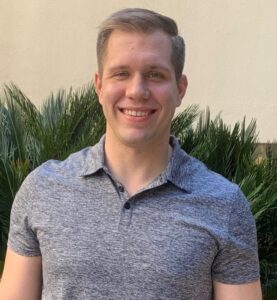T32 Feature: Postdoctoral Training in Drug Abuse Research: Behavior and Neurobiology
Postdoctoral Training in Drug Abuse Research: Behavior and Neurobiology
Principle Investigator: Principle Investigator: Dr. Charles P. France
Funding Source: National Institute on Drug Abuse
Substance use disorders (SUD) remain a critical area of rigorous, translational research and the need for talented early career scientists is greater than ever before. Now in its 14th year at the University of Texas Health Science Center at San Antonio, the National Institute on Drug Abuse T32 Postdoctoral Training Program in Substance Use Disorders is addressing that need by providing research training, professional and career development for young investigators, including many individuals from populations that are underrepresented in biomedical science. The Addiction, Research, Treatment, and Training (ARTT) Center of Excellence supports the following goals of the training program: 1) conduct state-of-the-art interdisciplinary research under the guidance of faculty mentors with expertise spanning molecular and cellular biology to neurochemistry and electrophysiology, behavioral pharmacology, and clinical trials; and 2) prepare trainees for the next step of their scientific careers through professional development as well as mentoring and networking opportunities. The T32 program, directed by Dr. Charles P France (Director), Dr. Gregory T Collins (Co-Director), and Analisa Tapia (Program Coordinator) provides many opportunities for trainees to conduct research, hone their presentation skills, meet and network with established senior scientists, and improve their grant writing skills with assistance from the Office of Postdoctoral Affairs (OPA). Trainees in the program have accumulated over 100 publications, been awarded numerous National Institutes of Health and other grants to fund their research, earned accolades at national and international science competitions, and gone on to successful careers in academia, government, and industry.
2024-2025 T32 Postdoctoral Trainees
 Robert Hammock, Ph.D.
Robert Hammock, Ph.D.
Mentor: Dr. Lynette Daws
Research Topic: Robert is a postdoctoral researcher working with Dr. Lynette Daws investigating how commonly abused drugs, such as methamphetamine, modulate the clearance of serotonin in the basolateral amygdala and aversive learning.
 Gopakumar (Gopu) Changarathil, Ph.D.
Gopakumar (Gopu) Changarathil, Ph.D.
Mentor: Dr. Lynette Daws
Research Topic:There are no therapies currently available for substance abuse disorder – as in the case of stimulants abuse related to amphetamine. Hence, there is an urgent need to understand the addiction associated cellular/molecular changes in the brain which could contribute to developing efficient therapies. My research deals with identifying the function of OCT3 dopamine transporter of astrocytes in regulating amphetamine associated addiction behavior. As astrocytes make up the vast majority of the cells in the brain – my research aims to find direct links between astrocytes and substance abuse disorder.

Lindsey Galbo-Thomma
Mentor: Dr. Charles P. France
Research Topic: My research utilizes methods and concepts of behavioral and receptor pharmacology to investigate the effects of drugs on behavior and physiological endpoints, such as ventilation, in nonhuman primates. I am currently examining buprenorphine, a mu-opioid receptor partial agonist and the most prescribed medication for treating opioid use disorder. One project is characterizing the effectiveness of buprenorphine for reducing the self-administration of fentanyl and methamphetamine, alone and in mixtures, as the co-use of these drugs has increased significantly the past few years. A second project is investigating the reversibility of the ventilatory depressant effects of buprenorphine which is difficult to achieve with mu-opioid receptor antagonists, such as naloxone, due to buprenorphine’s complex action at the mu-opioid receptor.
